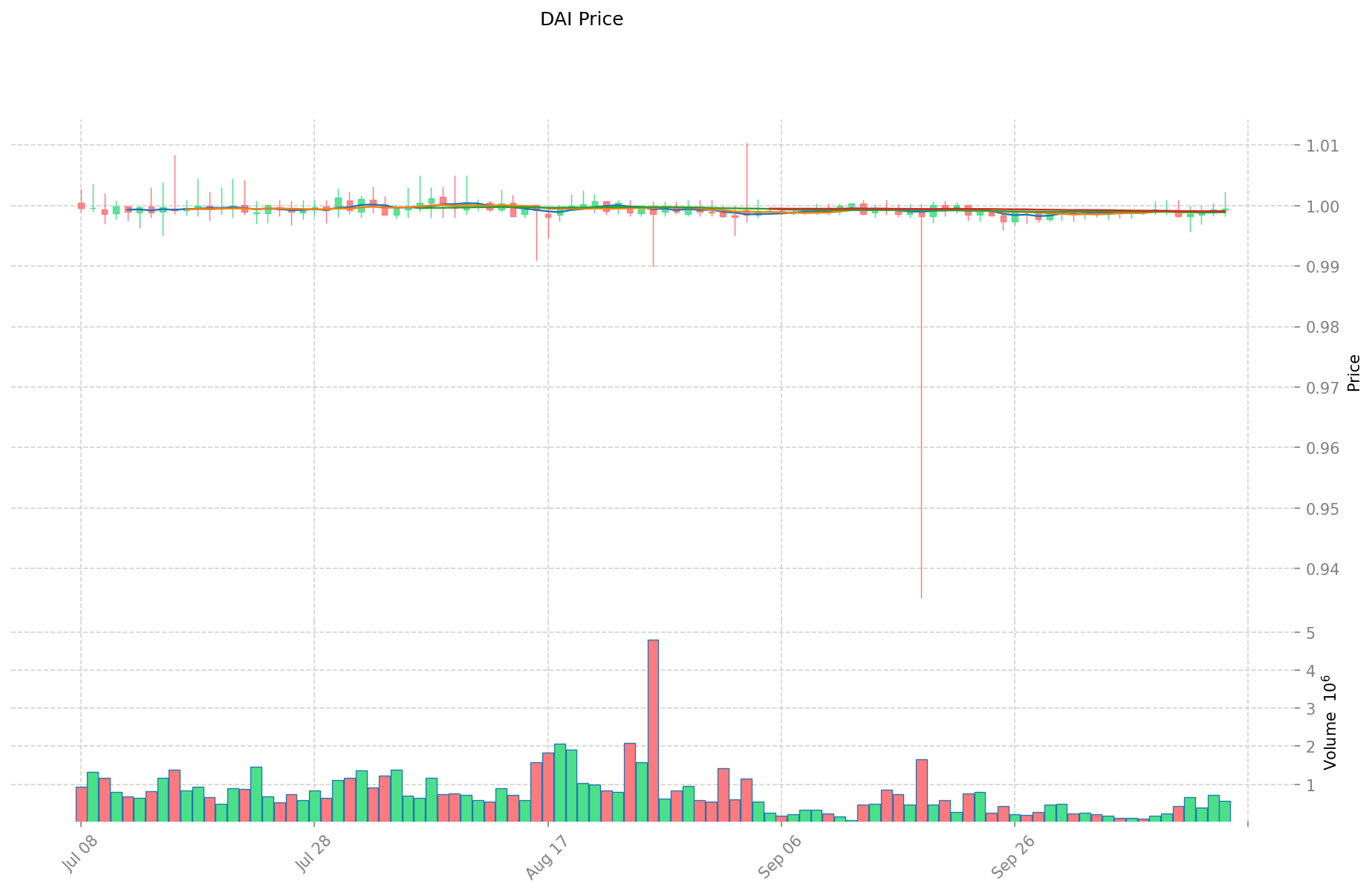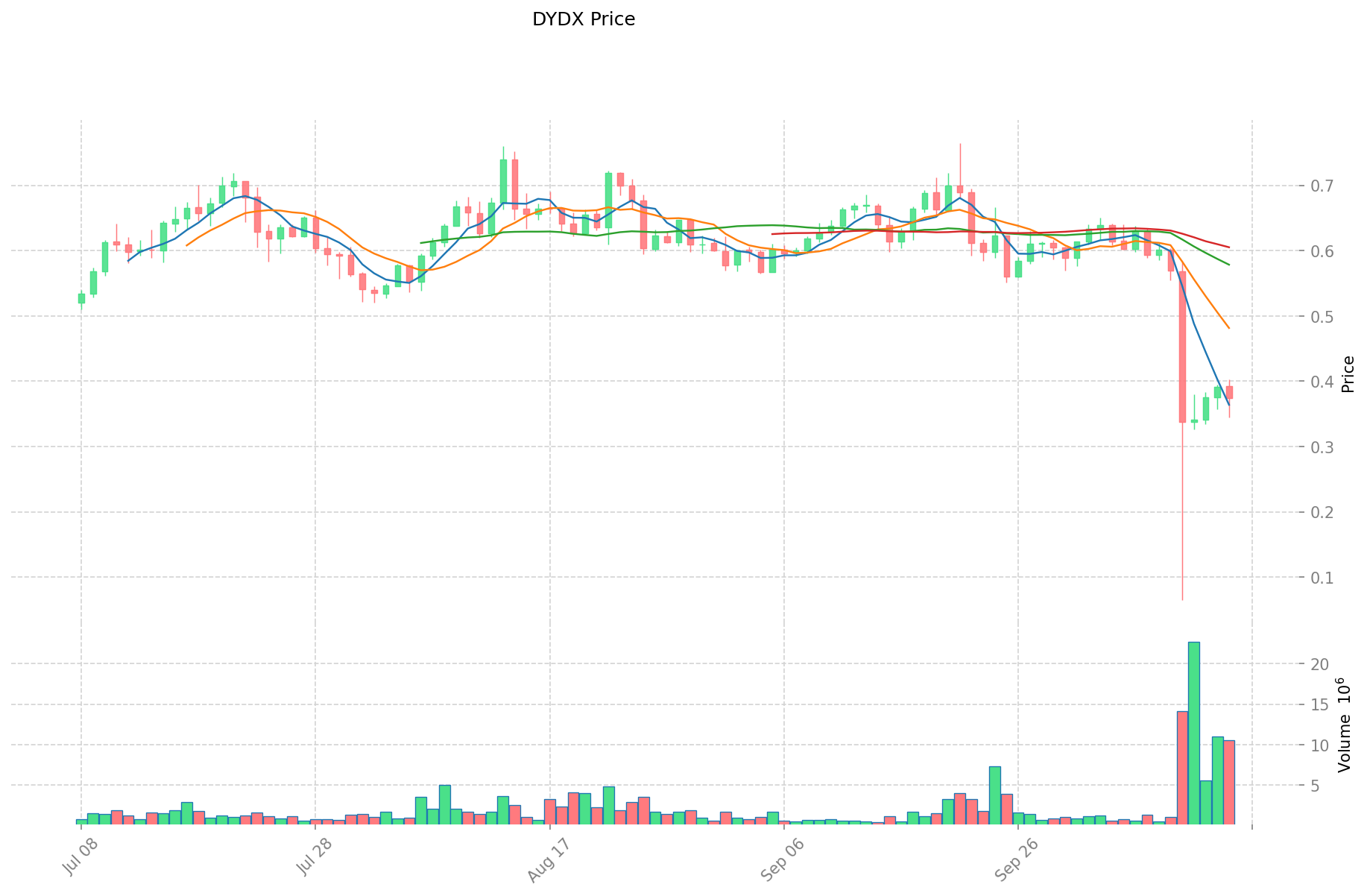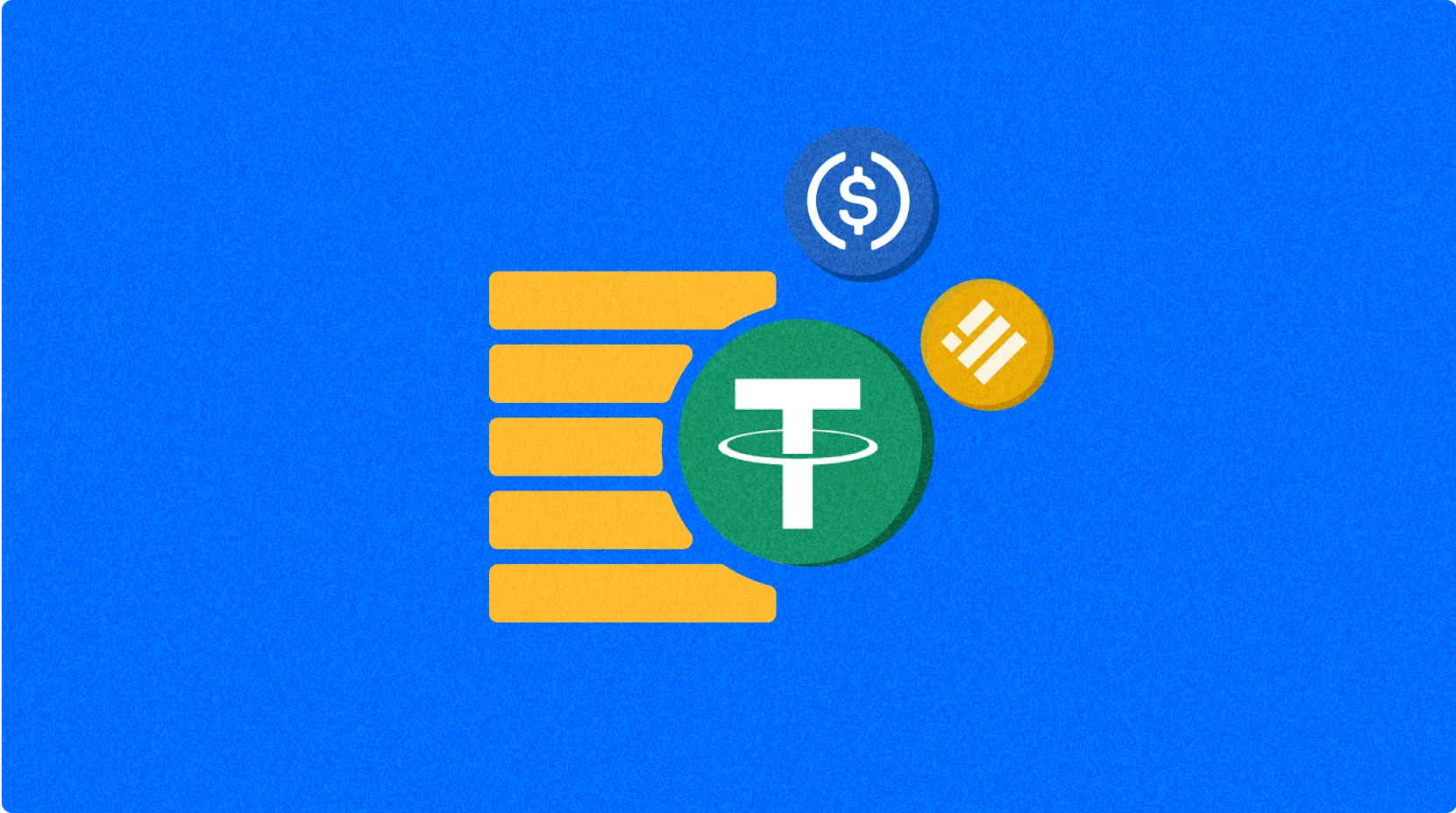DAI ve DYDX: DeFi Borç Verme Sektöründeki İki Büyük Oyuncunun Karşılaştırılması


Giriş: DAI ve DYDX Yatırım Karşılaştırması
Kripto para piyasasında DAI ile DYDX karşılaştırması, yatırımcıların daima gündeminde olan bir başlıktır. Bu iki varlık, hem piyasa değeri sıralaması, kullanım alanları ve fiyat performansı açısından belirgin farklar taşır hem de kripto varlıkların pozisyonlanmasında farklı yaklaşımları temsil eder.
DAI (DAI): 2017’de piyasaya çıktığından beri, Ethereum ekosistemindeki en büyük merkeziyetsiz stabilcoin olarak kabul görmektedir.
DYDX (DYDX): 2021’de piyasaya sürülmüş olup, merkeziyetsiz türev işlem protokolü kimliğiyle öne çıkar ve ERC20 token’larıyla marjin işlem olanağı sağlar.
Bu makale, DAI ile DYDX’in yatırım değerini kapsamlı biçimde analiz ederek, tarihsel fiyat eğilimleri, arz mekanizmaları, kurumsal benimsenme, teknolojik ekosistemler ve gelecek projeksiyonları üzerinden; yatırımcıların en çok merak ettiği şu soruya cevap arayacaktır:
"Şu anda hangisi daha avantajlı bir alım fırsatı?"
I. Fiyat Geçmişi Karşılaştırması ve Mevcut Piyasa Durumu
DAI ve DYDX Tarihsel Fiyat Eğilimleri
- 2020: DAI, stabilcoin karakteriyle 1$ civarında istikrarlı seyretti ve hafif dalgalanmalar yaşadı.
- 2024: DYDX, Mart ayında 4,52$ ile kendi rekorunu kırdı; bu artış merkeziyetsiz borsalara yönelik ilginin yükselmesiyle ilişkilendiriliyor.
- Karşılaştırma: DAI, her zaman 1$ sabit değerine yakın kalırken; DYDX, 4,52$ zirvesinden bugünkü yaklaşık 0,35$ seviyelerine kadar güçlü fiyat oynaklığı gösterdi.
Mevcut Piyasa Durumu (15 Ekim 2025)
- DAI güncel fiyatı: 0,99855$
- DYDX güncel fiyatı: 0,3675$
- 24 saatlik işlem hacmi: DAI 571.204.207$ / DYDX 3.623.079$
- Piyasa Duyarlılık Endeksi (Korku & Açgözlülük Endeksi): 34 (Korku)
Anlık fiyatları görmek için tıklayın:
- DAI güncel fiyatına bakın Piyasa Fiyatı
- DYDX güncel fiyatına bakın Piyasa Fiyatı


II. DAI ve DYDX Yatırım Değerini Etkileyen Temel Faktörler
Arz Mekanizması Karşılaştırması (Tokenomics)
- DYDX: Token dağıtımı; işlem ödülleri, likidite sağlayıcı teşvikleri ve stratejik tahsisler ile 5 yıllık kilit açma takvimine dayanır
- DAI: Teminatlandırma mekanizmaları ve MakerDAO yönetimiyle kontrol edilen algoritmik bir stabilcoin’dir
- 📌 Tarihsel desen: DYDX fiyatı, işlem hacmi ve protokol benimsenmesiyle şekillenirken, DAI sabitlenme mekanizması ile istikrarlı kalır.
Kurumsal Benimsenme ve Piyasa Uygulamaları
- Kurumsal sahiplik: DYDX, türev işlem platformunda profesyonel trader’lardan yüksek hacim çekmektedir
- Kurumsal kullanım: DYDX, merkeziyetsiz türev işlemlerin altyapısını oluştururken; DAI, DeFi ekosistemlerinde temel stabilcoin olarak yer alır
- Regülasyon politikaları: dYdX gibi merkeziyetsiz borsalar, stabilcoin’lere kıyasla daha yoğun düzenleyici incelemeye maruz kalabilir
Teknik Gelişim ve Ekosistem Oluşturma
- DYDX teknik güncellemeleri: Ethereum L2’den Cosmos SDK tabanlı bağımsız zincire (v4) geçiş ile gaz ücreti olmadan emir verme ve iptal avantajı sağlandı
- DAI teknik gelişimi: Teminatlandırılmış stabilcoin olarak MakerDAO yönetimiyle sürdürülüyor
- Ekosistem karşılaştırması: DYDX, yaklaşık 1 trilyon dolar işlem hacmiyle merkeziyetsiz türev ticaretinde lider; DAI ise DeFi uygulamalarında temel stabilcoin rolünde
Makroekonomik Faktörler ve Piyasa Döngüleri
- Enflasyonist ortamlardaki performans: DAI, enflasyondan bağımsız olarak istikrarlı kalacak şekilde tasarlanmıştır
- Makro para politikası: DYDX’te işlem hacmi, piyasa oynaklığı ve faiz değişimleriyle dalgalanabilir
- Jeopolitik faktörler: Merkeziyetsiz platformlar, jeopolitik gerilimlerde artan sınır ötesi işlem talebinden faydalanabilir
III. 2025-2030 Fiyat Tahmini: DAI ve DYDX
Kısa Vadeli Tahmin (2025)
- DAI: Muhafazakâr 1,00$ - 1,00$ | İyimser 1,00$ - 1,00$
- DYDX: Muhafazakâr 0,21$ - 0,37$ | İyimser 0,37$ - 0,51$
Orta Vadeli Tahmin (2027)
- DAI’nin fiyatı sabit kalabilir, tahmini değer 1,00$
- DYDX büyüme evresine geçebilir, tahmini değer 0,36$ - 0,69$
- Ana katalizörler: Kurumsal fon girişi, ETF’ler, ekosistem büyümesi
Uzun Vadeli Tahmin (2030)
- DAI: Temel senaryo 1,00$ - 1,00$ | İyimser senaryo 1,00$ - 1,00$
- DYDX: Temel senaryo 0,55$ - 0,74$ | İyimser senaryo 0,74$ - 0,85$
Feragatname: Bu analiz yalnızca bilgilendirme amaçlıdır; finansal tavsiye niteliği taşımaz. Kripto para piyasaları oldukça oynak ve tahmin edilemezdir. Yatırım kararı almadan önce mutlaka kendi araştırmanızı yapınız.
DAI:
| Yıl | Tahmini En Yüksek Fiyat | Tahmini Ortalama Fiyat | Tahmini En Düşük Fiyat | Değişim Oranı |
|---|---|---|---|---|
| 2025 | 1 | 1 | 1 | 0 |
| 2026 | 1 | 1 | 1 | 0 |
| 2027 | 1 | 1 | 1 | 0 |
| 2028 | 1 | 1 | 1 | 0 |
| 2029 | 1 | 1 | 1 | 0 |
| 2030 | 1 | 1 | 1 | 0 |
DYDX:
| Yıl | Tahmini En Yüksek Fiyat | Tahmini Ortalama Fiyat | Tahmini En Düşük Fiyat | Değişim Oranı |
|---|---|---|---|---|
| 2025 | 0,505256 | 0,3688 | 0,206528 | 0 |
| 2026 | 0,62057976 | 0,437028 | 0,3714738 | 18 |
| 2027 | 0,6927330828 | 0,52880388 | 0,3595866384 | 43 |
| 2028 | 0,677953014354 | 0,6107684814 | 0,433645621794 | 66 |
| 2029 | 0,84411257971887 | 0,644360747877 | 0,3866164487262 | 75 |
| 2030 | 0,848429796729645 | 0,744236663797935 | 0,550735131210471 | 102 |
IV. Yatırım Stratejisi Karşılaştırması: DAI ve DYDX
Uzun Vadeli ve Kısa Vadeli Yatırım Stratejileri
- DAI: İstikrar ve piyasa dalgalanmasına karşı koruma arayanlar için uygun
- DYDX: Merkeziyetsiz finans sektöründe büyüme potansiyeli arayanlar için uygun
Risk Yönetimi ve Varlık Dağılımı
- Temkinli yatırımcılar: DAI %80 / DYDX %20
- Agresif yatırımcılar: DAI %40 / DYDX %60
- Koruma araçları: Stabilcoin tahsisi, opsiyonlar, çapraz döviz portföyleri
V. Potansiyel Risk Karşılaştırması
Piyasa Riski
- DAI: Fiyat oynaklığı riski düşük, ancak sabit değer koruma riski mevcut
- DYDX: Piyasa duyarlılığı ve hacim dalgalanmaları nedeniyle yüksek oynaklık riski taşır
Teknik Risk
- DAI: Akıllı kontrat açıkları, teminat sistemi istikrarı
- DYDX: Ağ yoğunluğu, ölçeklenebilirlik sorunları, yeni güncellemelerde hata riski
Regülasyon Riski
- Küresel regülasyon politikaları, stabilcoin’ler ve merkeziyetsiz borsalar üzerinde farklı etkiler yaratabilir
VI. Sonuç: Hangisi Daha İyi Alım?
📌 Yatırım Değeri Özeti:
- DAI avantajları: İstikrar, DeFi’de geniş kullanım, düşük risk profili
- DYDX avantajları: Büyüme potansiyeli, merkeziyetsiz türev işlemlerine erişim
✅ Yatırım Tavsiyesi:
- Yeni yatırımcılar: İstikrarlı yapısı nedeniyle DAI’ye daha fazla ağırlık verilebilir
- Deneyimli yatırımcılar: DAI ve DYDX’ten oluşan dengeli portföy oluşturulabilir
- Kurumsal yatırımcılar: Merkeziyetsiz türev piyasasındaki büyümeye maruz kalmak için DYDX’e stratejik tahsis yapılabilir
⚠️ Risk Uyarısı: Kripto para piyasaları yüksek derecede oynaktır. Bu makale yatırım tavsiyesi değildir. None
VII. Sıkça Sorulan Sorular
S1: DAI ve DYDX arasındaki başlıca farklar nelerdir? C: DAI, 1$’a sabitlenmiş merkeziyetsiz bir stabilcoin’dir; DYDX ise merkeziyetsiz türev işlem platformunun token’ıdır. DAI fiyat istikrarı hedeflerken, DYDX’in değeri platform kullanımı ve piyasa koşullarına göre değişir.
S2: DAI mi DYDX mi daha güvenli yatırım olarak görülür? C: Genellikle DAI, 1$ sabit fiyat hedefiyle daha güvenli kabul edilir. DYDX ise oynak bir varlık olduğu için daha yüksek risk ve potansiyel getiri sunar.
S3: DAI ve DYDX’in arz mekanizmasında nasıl bir fark vardır? C: DAI’nin arzı, teminatlandırma mekanizmaları ve MakerDAO yönetimiyle kontrol edilir ve 1$ sabitliğini korumaya yöneliktir. DYDX’in arzı sabittir, dağıtımı işlem ödülleri, likidite teşvikleri ve stratejik tahsisler içerir.
S4: DYDX fiyatını en çok hangi faktörler etkiler? C: DYDX fiyatı esas olarak dYdX platformundaki işlem hacmi, genel kripto piyasası koşulları ve DeFi alanındaki gelişmelerden etkilenir.
S5: DAI ve DYDX’in regülasyon riskleri nasıl karşılaştırılır? C: DYDX, merkeziyetsiz borsa token’ı olarak DAI’ye göre daha yüksek düzenleyici denetimle karşılaşabilir. Ancak, ikisi de küresel kripto para regülasyonlarından etkilenir.
S6: DAI ve DYDX çeşitlendirilmiş bir kripto portföyünde yer alabilir mi? C: Evet, DAI istikrarlı değer saklama aracı olarak; DYDX ise merkeziyetsiz türev ticaretinin büyümesine erişim sağlar. Portföy, yatırımcının risk toleransına göre dengelenebilir.
S7: DAI ve DYDX’in uzun vadeli fiyat tahminleri nedir? C: DAI’nin uzun vadede 1$ sabitliğini koruması beklenmektedir. DYDX’in 2030 için uzun vadeli tahmini iyimser senaryoda 0,55$ ile 0,85$ arasında; fakat bu öngörüler spekülatiftir ve piyasa koşullarına bağlıdır.

Dai Fiyat Analizi 2025: Stabilcoin Pazarının Eğilimleri ve Görünümü

USDe Fiyat Tahmini: 2025 Ethena Stabilcoin Pazar Analizi ve Yatırım Stratejisi

Gate'de USD1 stablecoin: WLFI Token için Analiz ve Yatırım Fırsatları

2025'te Gate'de GUSD: Gemini Dolarının Avantajları ve Fırsatları

46 milyar WON, Dolar olarak ne kadar?

2025'te Gate.com üzerinden USD1 stablecoin kullanarak ödüller nasıl kazanılır

Xenea Günlük Quiz Yanıtı 14 Aralık 2025

Kripto Terminolojisini Anlama: Yeni Başlayanlar İçin Rehber

NFT’lerde Yeni Bir Dönem: Soulbound Token’ların Temelini Kavramak

Blockchain Teknolojisinde Tendermint’in Konsensüs Mekanizmasını Anlamak

Ethereum Name Service Alan Adlarını Satın Alma ve Yönetme Yöntemleri





